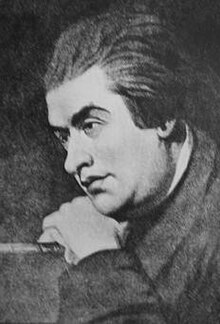
Back بداية حياة صموئيل جونسون Arabic بدایة حیاة صموئیل جونسون AZB دوران اولیه زندگی ساموئل جانسون Persian Infanzia e giovinezza di Samuel Johnson Italian

Samuel Johnson (18 September 1709 [O.S. 7 September] – 13 December 1784) was an English author born in Lichfield, Staffordshire. He was a sickly infant who early on began to exhibit the tics that would influence how people viewed him in his later years. From childhood he displayed great intelligence and an eagerness for learning, but his early years were dominated by his family's financial strain and his efforts to establish himself as a school teacher.
After a year spent studying at Pembroke College, Oxford, Johnson was forced to leave by lack of financial support. He tried to find employment as a teacher, but was unable to secure a long-term position. In 1735 he married Elizabeth "Tetty" Porter, a widow 20 years older than himself, and the responsibilities of this marriage made him determined to succeed as an educator. He established his own school, but the venture was unsuccessful. Thereafter, leaving his wife behind in Lichfield, he moved to London, where he spent the rest of his life. In London he began writing essays for The Gentleman's Magazine, and also befriended Richard Savage, a notorious rake and aspiring poet who claimed to be the disavowed son of a nobleman. Eventually he wrote the Life of Mr Richard Savage, his first successful literary biography. He also wrote the powerful poem London, an 18th-century version of Juvenal's Third Satire, as well as the tragic drama Irene, which was not produced until 1749, and even then was not successful.
Johnson began his literary career as a minor Grub Street hack writer, but he went on to make lasting contributions to English literature as a poet, essayist, moralist, novelist, literary critic, biographer, editor and lexicographer. His early works, especially London and Life of Mr Richard Savage, contain Johnson's emerging views on biography, morality, and literature in general.